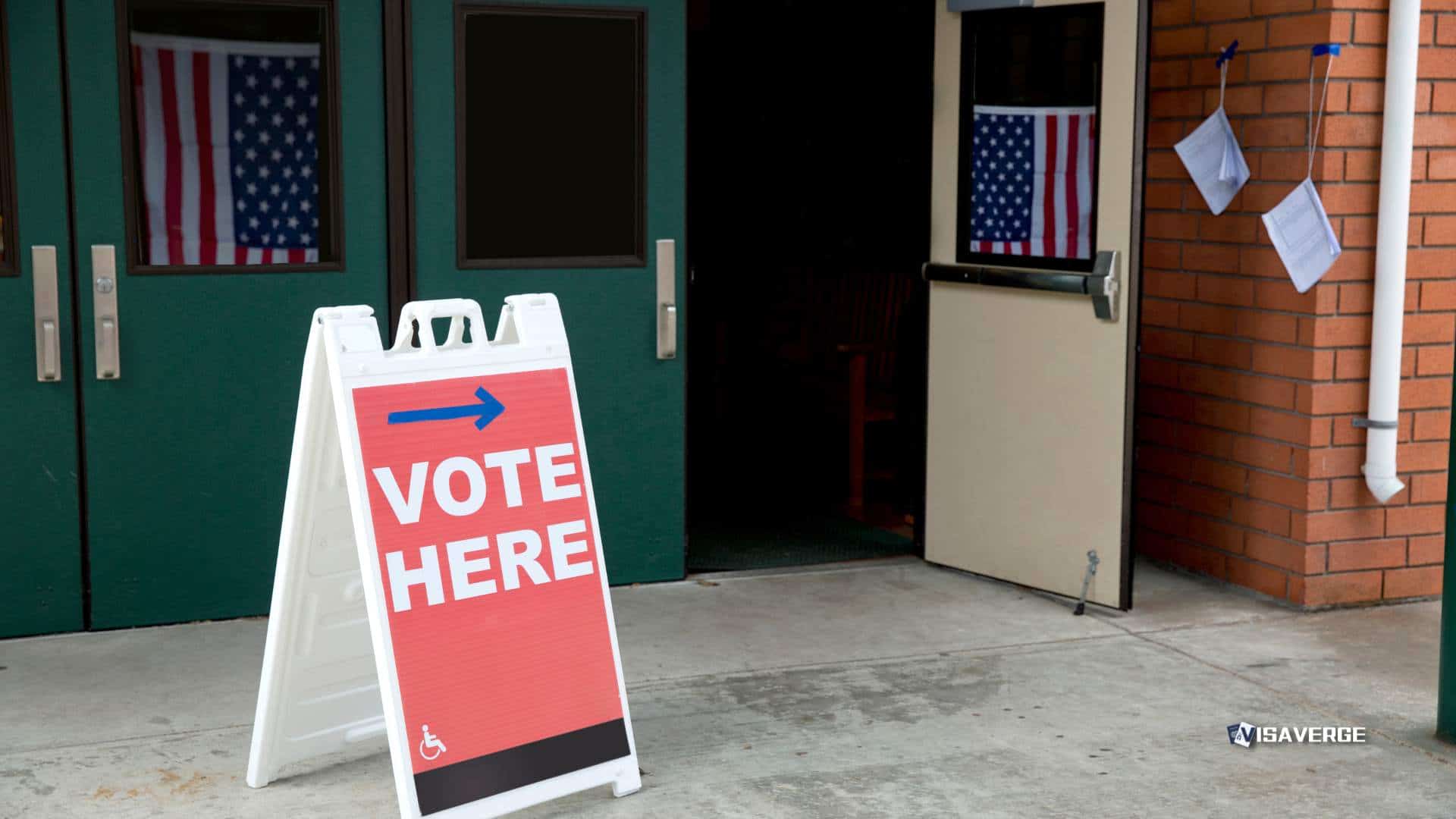Key Takeaways
- The Alien Enemies Act, historically for wartime security, resurfaces in politics with Trump’s deportation proposal amidst complex legal obstacles.
- Initially targeting foreign nationals in declared war, its past applications have sparked significant civil liberties controversies.
- Modern use faces challenges: no declarations of war, legal hurdles, and resource and political constraints hinder its feasibility.
The Alien Enemies Act of 1798, part of the Alien and Sedition Acts, has resurfaced in modern political discourse due to former U.S. President Donald Trump’s proposal to invoke it for mass deportations. This act was initially conceived amid rising tensions between the United States 🇺🇸 and France 🇫🇷, following the XYZ Affair, where diplomatic efforts soured, and war loomed on the horizon. As reported by VisaVerge.com, the primary objective of this act was to fortify national security by permitting the U.S. government to detain and expel nationals from enemy countries in times of declared war. This act, together with its companion laws, intended to curb espionage and subversion risks posed by non-citizens during such fragile periods in history.
Historical Context

The Alien Enemies Act was designed to underpin national security during times of declared war, empowering the president with authority to detain or remove male citizens aged fourteen and over from countries viewed as hostiles. Importantly, this act is triggered only when there is a formal declaration of war or an invasion by a foreign state. Over time, its scope has widened; in 1918, during World War I, amendments abolished gender limitations, rendering the act applicable to foreigners regardless of gender.
Historical Applications
- War of 1812: During this conflict, the act allowed for the control and potential detention of British nationals residing in the United States, reflecting the country’s caution towards foreign nationals from belligerent nations.
-
World War I: President Woodrow Wilson leveraged this act against citizens from Germany 🇩🇪 and Austria-Hungary, ensuring their monitoring and, in instances deemed necessary, their detention.
-
World War II: Following the attack on Pearl Harbor, President Franklin D. Roosevelt invoked the Alien Enemies Act which led to the notorious internment of Japanese 🇯🇵, German 🇩🇪, and Italian 🇮🇹 nationals. This action under Proclamation 2525 marked a dark chapter in American history, highlighting the potential misapplication of powerful legislative tools.
While the act’s original intent was rooted in national security, its applications, particularly in World War II, underscored pronounced civil liberties violations and human rights concerns. The internment of Japanese Americans, often community figures and leaders, underscored the act’s reach and its ability to disrupt lives based purely on nationality.
Modern Relevance and Trump’s Proposal
Donald Trump’s recent proposal to use the Alien Enemies Act for mass deportations if elected highlights the act’s continued reach and carries significant implications. However, several hurdles complicate this proposal:
- Legal Challenges: The act’s execution is contingent upon a formal declaration of war or a current ongoing invasion. Presently, without such a declaration against any specific nation, employing the act legally remains improbable.
-
Judicial Review: Any endeavor to deploy this legislation outside its historical wartime context is susceptible to judicial challenges. A Supreme Court assessment could be necessitated to interpret the act’s suitability in today’s scenario, posing considerable legal barriers.
-
Political Implications: Trump’s rhetoric often labels immigration as an “invasion.” However, this political portrayal does not align with the legal framework established by the act, presenting a significant misalignment that complicates its invocation.
-
Historical Misuse: The act’s history of misuse, especially during World War II, provokes apprehension about similar human rights violations were it to be activated in current times.
Challenges and Limitations
Multiple challenges underscore the difficulty in Trump’s proposed use:
- Resource Limitation: Beyond legalities, practical constraints inhibit large-scale mass deportations. Federal resources for such actions are limited, mirroring the logistical difficulties faced by prior administrations.
-
Political Opposition: Both political parties likely harbor resistance towards this proposal, considering both the potential civil liberty violations and potent historical connotations tied to its past uses.
Conclusion
Despite being technically active, the Alien Enemies Act of 1798 is largely constrained by the requirement for a formal war declaration or invasion to activate its provisions. While Trump’s proposal presents a theoretical framework for its usage, it is hampered by substantial legal and practical obstacles. Historically, the act’s application has borne considerable controversy, often overshadowed by civil liberty debates and underscoring the complexities of national security measures.
Recent Developments and Future Considerations
No formal war declaration has occurred since World War II, further limiting the act’s deployment possibilities in modern conflicts characterized by military actions without an official wartime designation. Hence, the likelihood of the act serving as a viable tool for contemporary immigration enforcement remains low.
For readers interested in delving deeper into the intricacies of U.S. immigration law and policy or seeking guidance on immigration-related challenges, resources such as official government websites provide comprehensive and authoritative information. One such resource is USA.gov, where further reading can enhance understanding and offer insights into the current legal landscape surrounding national security and immigration.
Summary
In summary, while the Alien Enemies Act historically played a role in safeguarding national security, its usage has consistently sparked debate over civil liberties, significantly impacting affected communities. Trump’s proposition to employ this legislation faces formidable hurdles, accentuated by its complex historical backdrop and the unfavored implications of its execution in modern scenarios. The Alien Enemies Act, with its intricate balance between security needs and civil liberties, remains a focal point for ongoing discussions in the realm of U.S. immigration policy.
Learn Today
Alien Enemies Act: U.S. law allowing detention and deportation of nationals from enemy countries during declared wars.
XYZ Affair: A diplomatic incident (1797-1798) between the U.S. and France resulting in increased tensions and potential war.
Proclamation 2525: An order by President Roosevelt during World War II for the internment of Japanese, German, and Italian nationals in the U.S.
Judicial Review: A legal process where courts examine the lawfulness or constitutionality of legislative actions or executive decisions.
Internment: The imprisonment or confinement of individuals, often during wartime, based on nationality or perceived security threats.
This Article in a Nutshell
The Alien Enemies Act of 1798, now spotlighted by Trump’s deportation proposal, highlights ongoing national security vs. civil liberty debates. Initially crafted post-XYZ Affair tensions, its historical misuse, especially during WWII, underscores potential risks. Trump’s intentions face legal, practical, and ethical hurdles, questioning the act’s relevance in modern scenarios.
— By VisaVerge.com
Read more:
• Impact of Trump’s Deportation Plan on Home Affordability and Builders
• UK’s Major Deportation of Nigerians and Ghanaians on a Single Flight
• Germany’s Afghan Migrant Deportations Ignite Human Rights Debate
• Indian Students Protest Against Canada’s Immigration Policy Amid Deportation Concerns
• Protests by Indian Students Over Changes in Canada’s Immigration Policy







